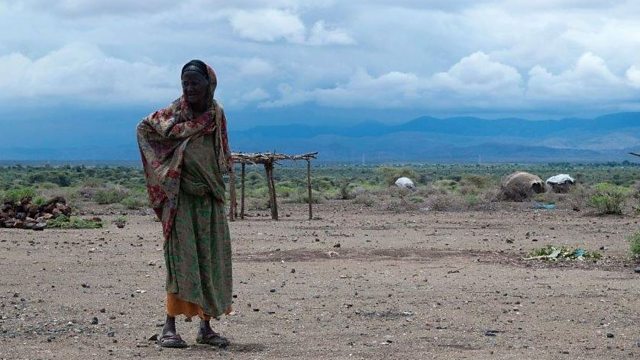Impact of Recent El Niño
El Niño and La Niña; Edible bale wrapping; Biomass measuring satellite; Transit of Mercury; game to check on dementia; Coral bleaching in the Great Barrier Reef
We are coming to the end of the strong El Niño event, which is associated with a warming of the central and eastern tropical Pacific. But now should we expect an equally strong La Niña event to follow? Mike McPhaden, NOAA’s El Niño expert explains what this will mean to our climate?
Edible Bale Wrapping
Did you know that hay, straw and silage bales are often bound in plastic? This needs to be removed before the bales can be used for livestock food and bedding. The process is arduous, and the waste, non-biodegradable - plastic ends up in a landfill. The plastic is also potentially harmful, or fatal, to livestock, if accidentally ingested.
It is a problem a group of young chemists at Imperial College London set their minds to and they have come up with an ingenious and secret formula for edible hay bale wrapping.
Dementia Game
Dementia researchers have developed a video game that could lead to the development of early diagnostic tests for the disease. The way players navigate the 3D levels in Sea Hero Quest will be anonymously tracked and sent to the researchers. Understanding how people navigate 3D environments is important because the skill is often one of the first lost by people who have dementia. Researchers say the game could generate an unprecedented amount of data.
Transit of Mercury
Thirteen or 14 times a century, a little dark spot crosses the Sun. It is happening on Sunday GMT. The planet Mercury will transit our Sun. You will need to protect your eyes to see it. But during the transit, scientists will have a rare opportunity to study the composition of Mercury's atmosphere - the thinnest in the solar system - as the sun shines through it.
Satellite to Map Earth’s Biomass
British industry is to lead the construction of a satellite that will weigh the world's trees. The Biomass mission's novel space radar will make 3D maps of forests, improving our understanding of how carbon is cycled through the Earth system. Its data will be important for climate research, and will create a baseline for treaties that seek to monitor the status of global forest resources.
Coral Bleaching in the Great Barrier Reef
A group of marine scientists have just returned from nearly a month at sea studying the wider implications of the worst coral bleaching event to have ever hit the Great Barrier Reef. Strongly linked to El Niño, this devastating loss of corals will take a long time to recover. It’s hoped the findings from this latest trip will also help scientists better understand what species if any, are more resilient to bleaching events like these.
(Photo: Ethiopia struggles to combat its worst drought for 30 years, with at least 10.2 million people needing food aid. © Vincent Defait/AFP/Getty Images)
Last on
More episodes
Broadcasts
- Thu 5 May 2016 21:32GMTBBC World Service except East and Southern Africa & News Internet
- Fri 6 May 2016 01:32GMTBBC World Service Americas and the Caribbean
- Fri 6 May 2016 02:32GMTBBC World Service Online, Europe and the Middle East & UK DAB/Freeview only
- Fri 6 May 2016 03:32GMTBBC World Service East Asia & South Asia only
- Fri 6 May 2016 04:32GMTBBC World Service Australasia
- Fri 6 May 2016 06:32GMTBBC World Service East and Southern Africa & Europe and the Middle East only
- Fri 6 May 2016 14:32GMTBBC World Service except News Internet
Podcast
-
![]()
Science In Action
The BBC brings you all the week's science news.


